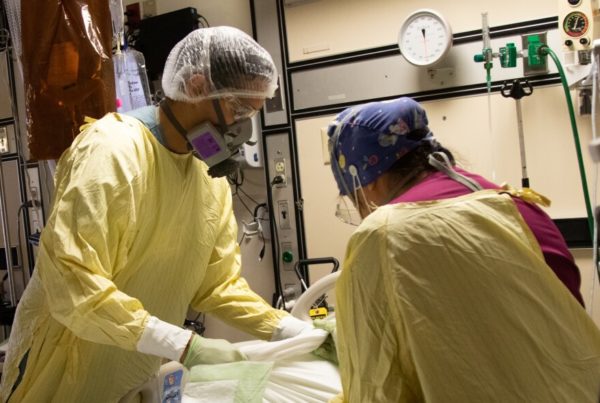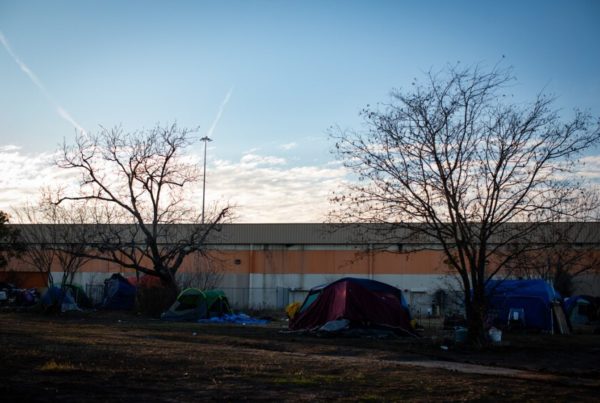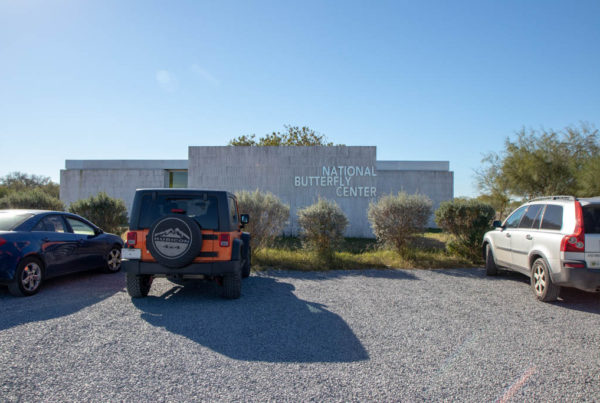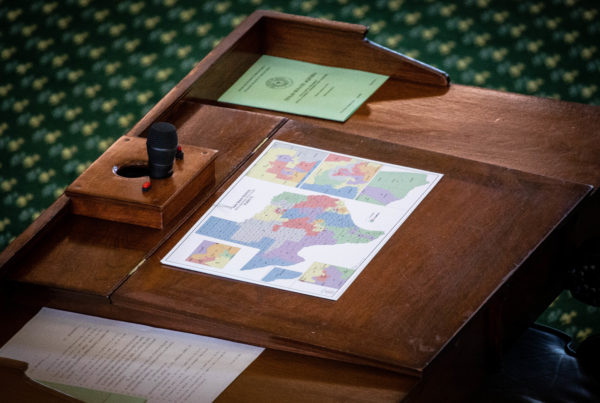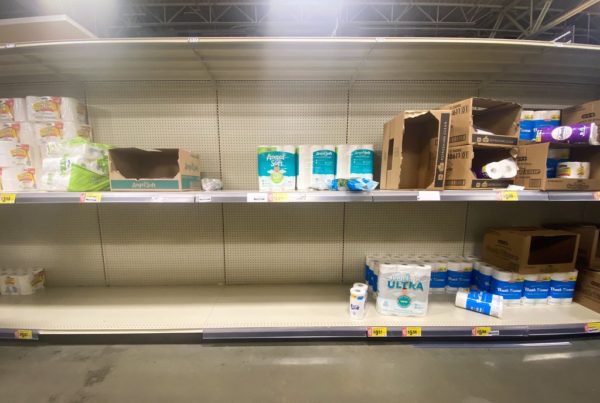President Biden’s announcement this week that he’s renewing the so-called “Cancer Moonshot” first unveiled when he was vice president came as welcome news to leaders at the Cancer Prevention and Research Institute of Texas (CPRIT). Biden’s goal is to cut the cancer death rate in America in half in the next 25 years.
Michelle Le Beau is chief scientific officer for CPRIT, the state agency Texas voters approved creating in 2007. Le Beau joined CPRIT in October.
CPRIT has recently made headlines as some members of its scientific review board have quit or spoken out over Texas health policies. Le Beau address that issue as well as the challenges ahead for making progress towards accomplishing Biden’s ‘Cancer Moonshot.’
Listen to the interview in the player above or read the transcript below.
This transcript has been edited lightly for clarity.
Texas Standard: Does President Biden’s ‘Cancer Moonshot’ announcement mean anything for CPRIT’s work?
Michelle Le Beau: Well, Biden’s moonshot announcement is a welcome opportunity. CPRIT has made enormous progress. We have recruited 254 new scientists to Texas, supported 43 innovative biotechnology and pharmaceutical companies to bring them to Texas and provided $7.4 million in cancer prevention and early detection services. But we can’t do it alone, and having a national initiative that focuses the attention on cancer screening, on cancer prevention and early diagnosis is a welcome opportunity.
What are some of the biggest hurdles as we stand now when it comes to cutting cancer death rates?
We’ve made enormous progress in the last 50 years. In the last 30 years, we’ve cut the cancer death rate by 30%. And the goal is to maintain and increase that momentum such that we would decrease the death rate by another 50% in the next 25 years. To do that, we’re going to have to implement a number of new initiatives. And that includes increasing screening, addressing adult obesity and physical inactivity, youth smoking and the use of e-cigarettes. All of these are going to be important issues for us to address within the state, but also the nation.
From a research standpoint, is there a major obstacle now, given all the years and the work that’s been put into cancer research, that you see as the next mountain to climb?
I think there is always progress in research, but I would say tackling the most challenging issues, such as developing therapies for the most recalcitrant cancers, those cancers that currently have poor survival rates and understanding why some patients respond to therapy and other patients don’t. So understanding how cancers develop resistance to therapy and how we can circumvent that and treat those cancers more effectively.
Scientists on CRPIT’s review board have quit and are speaking out against other health care issues in the state, including issues like lack of abortion access and what they call misguided COVID policies. Are you sensing that the politics of Texas is getting in the way of CPRIT’s mission, which is focused on cancer?
Cancer is a formidable foe, and cancer is our foe, not politics. And we are remaining laser-focused on supporting research that is developing new therapies for cancer and expanding the research capabilities of public and private enterprises within Texas and developing and implementing the Texas Cancer Plan. I don’t think that the current concerns that have been raised by some of our peer reviewers has distracted us from maintaining our focus on our mission.
Considering Biden’s ‘Moonshot’ initiative, is there something the federal government could do that would benefit CPRIT?
I think that one of the biggest challenges that we all have is disseminating the new advances that we make to deliver services to underserved populations and populations who may live in remote areas and have limited access to care. The federal government, through this program, can really expedite and eliminate some of the barriers that we all face by helping to create a workforce, helping to train people in this new area of research and delivery of care, and developing standards in the field that can be adopted across the nation.






